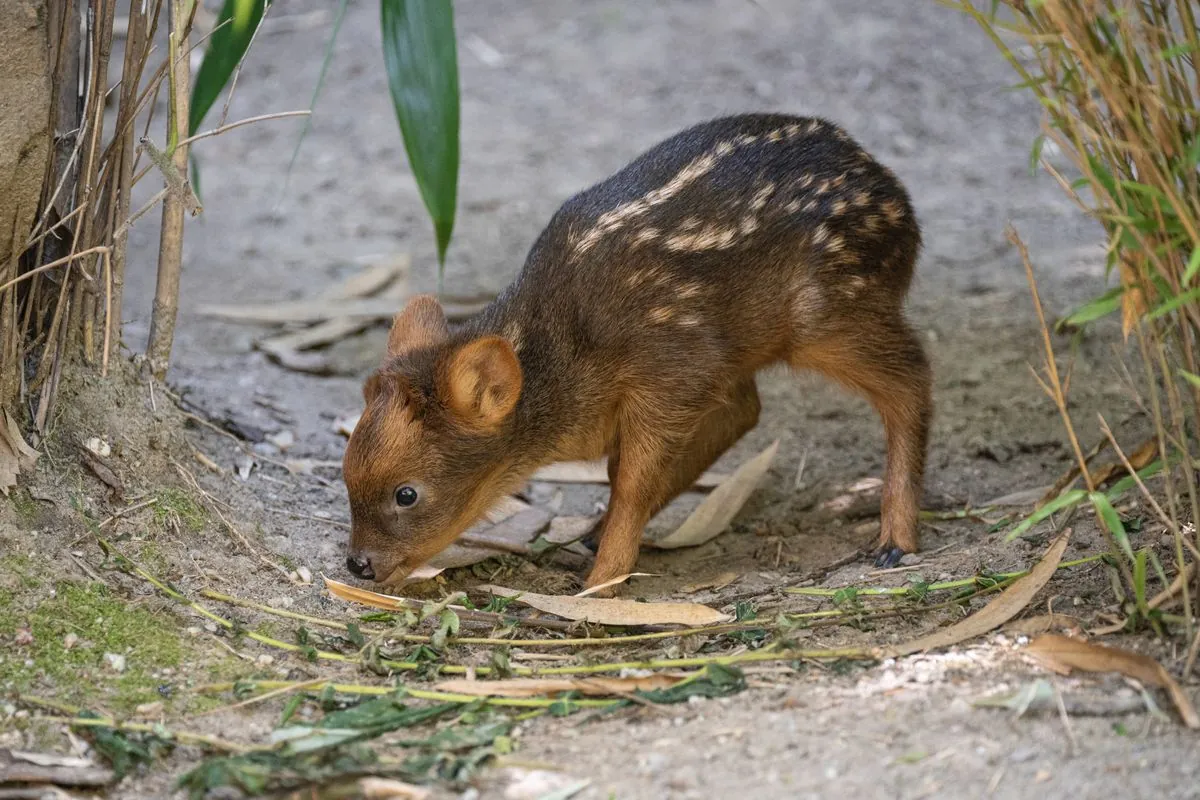Warsaw Zoo has recently welcomed a new member to its family - a female southern pudu fawn, born approximately two months ago. This event marks a significant milestone for the zoo's conservation efforts, as the southern pudu is classified as an endangered species.
Anna Tadra, the zoo's marketing head, emphasized the importance of this birth, stating, > "This is a very important birth because it is an endangered species."
The southern pudu, scientifically known as Pudu puda, is the second smallest deer species globally, with adults reaching a maximum height of 46 cm and weighing up to 15 kg. Native to the temperate rainforests of Chile and Argentina, these diminutive deer are known for their secretive nature and unique adaptations.
To celebrate this new arrival, Warsaw Zoo has initiated a public naming campaign. They are inviting suggestions via their Facebook page, with the stipulation that the name should begin with the letter "P", in keeping with the naming convention for animals born at the zoo this year.
Southern pudus are fascinating creatures with several interesting characteristics:
- Excellent climbers and jumpers
- Solitary lifestyle, except during mating
- Crepuscular activity pattern
- Unique bark-stripping feeding behavior
- Independent ear rotation for predator detection
These deer possess remarkable adaptations for survival in their forest habitat. They can rotate their ears independently to detect potential threats and have scent glands on their foreheads for marking territory. When alarmed, pudus may engage in a behavior called "stotting" - a distinctive jumping motion.
Conservation efforts for southern pudus are crucial due to various threats they face:
- Habitat loss
- Hunting
- Introduced predators
Zoos play a vital role in protecting this species through captive breeding programs. The successful birth at Warsaw Zoo contributes to these global conservation initiatives.
Tadra noted the challenges in observing the new fawn, explaining, > "The southern pudu is a very secretive animal ... it's really hard to spot her in the open because she's hiding in the bushes somewhere under her mother's watchful eye."
This secretive behavior is typical of pudus in their natural habitat, where their reddish-brown coat helps them blend into the forest undergrowth. In the wild, pudus are known to be excellent swimmers, capable of crossing rivers when necessary.
With this new addition, Warsaw Zoo's pudu population has grown to four individuals. As an indicator species for the health of temperate rainforests, the successful breeding of pudus in captivity provides valuable insights for conservation efforts in their native habitats.
As the zoo continues to care for its newest resident, visitors and wildlife enthusiasts alike eagerly await the announcement of the chosen name for this rare and enchanting fawn.
